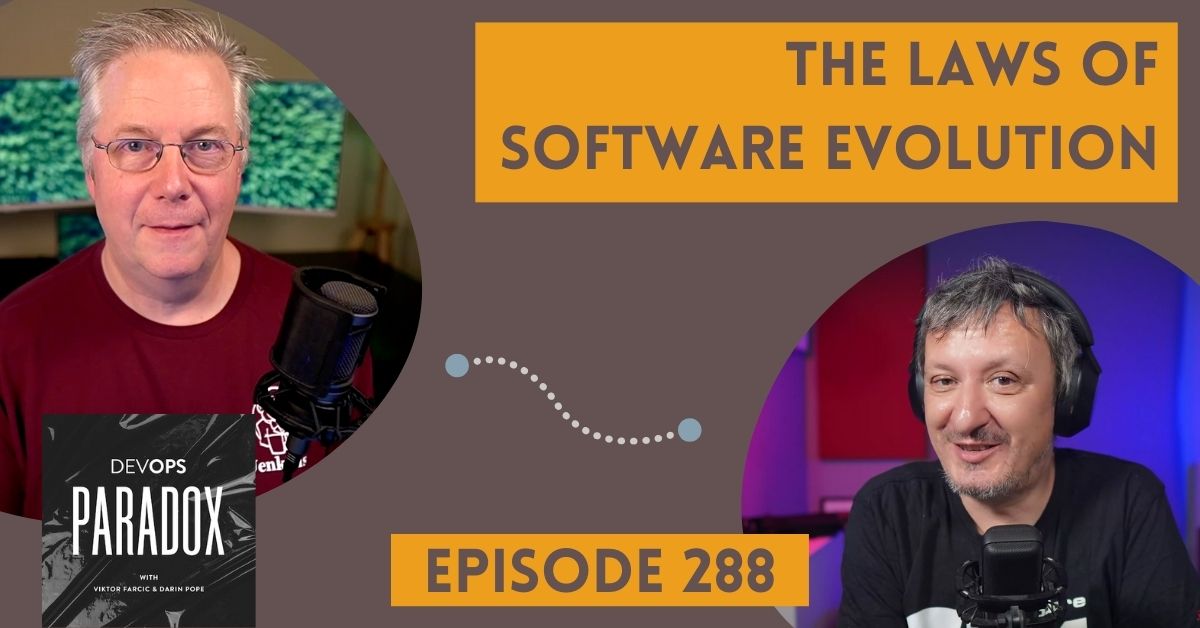DOP 288: The Laws of Software Evolution
Posted on Wednesday, Nov 6, 2024
Show Notes
#288: Let’s journey back in time, roughly 30 to 50 years ago, to an era where systems were relatively simple. These foundational systems were built with fewer components, making them not only easier to understand but also simpler to manage. At that time, the stability of a system was often directly correlated with its simplicity. Fewer variables meant fewer potential points of failure, and system operators could focus on optimizing the core elements. The mantra of the day was straightforwardness and robust design.
Fast forward to the present, and we find ourselves surrounded by systems that are more interconnected and interdependent than ever before. While each individual component or subsystem might be meticulously engineered and robust by today’s standards, the sheer volume and interconnectedness introduce a new layer of complexity. However, this is not a detriment to technological progress, but rather a testament to our boundless ambition and innovation.
In this episode, Darin and Viktor discuss an article from 44 years ago titled Programs, Life Cycles, and Laws of Software Evolution by Meir Lehman.
Links from the episode
Hosts


Viktor Farcic
Viktor Farcic is a member of the Google Developer Experts and Docker Captains groups, and published author.
His big passions are DevOps, Containers, Kubernetes, Microservices, Continuous Integration, Delivery and Deployment (CI/CD) and Test-Driven Development (TDD).
He often speaks at community gatherings and conferences (latest can be found here).
He has published The DevOps Toolkit Series, DevOps Paradox and Test-Driven Java Development.
His random thoughts and tutorials can be found in his blog TechnologyConversations.com.
Links
Rate, Review, & Subscribe on Apple Podcasts
If you like our podcast, please consider rating and reviewing our show! Click here, scroll to the bottom, tap to rate with five stars, and select “Write a Review.” Then be sure to let us know what you liked most about the episode!
Also, if you haven’t done so already, subscribe to the podcast. We're adding a bunch of bonus episodes to the feed and, if you’re not subscribed, there’s a good chance you’ll miss out. Subscribe now!